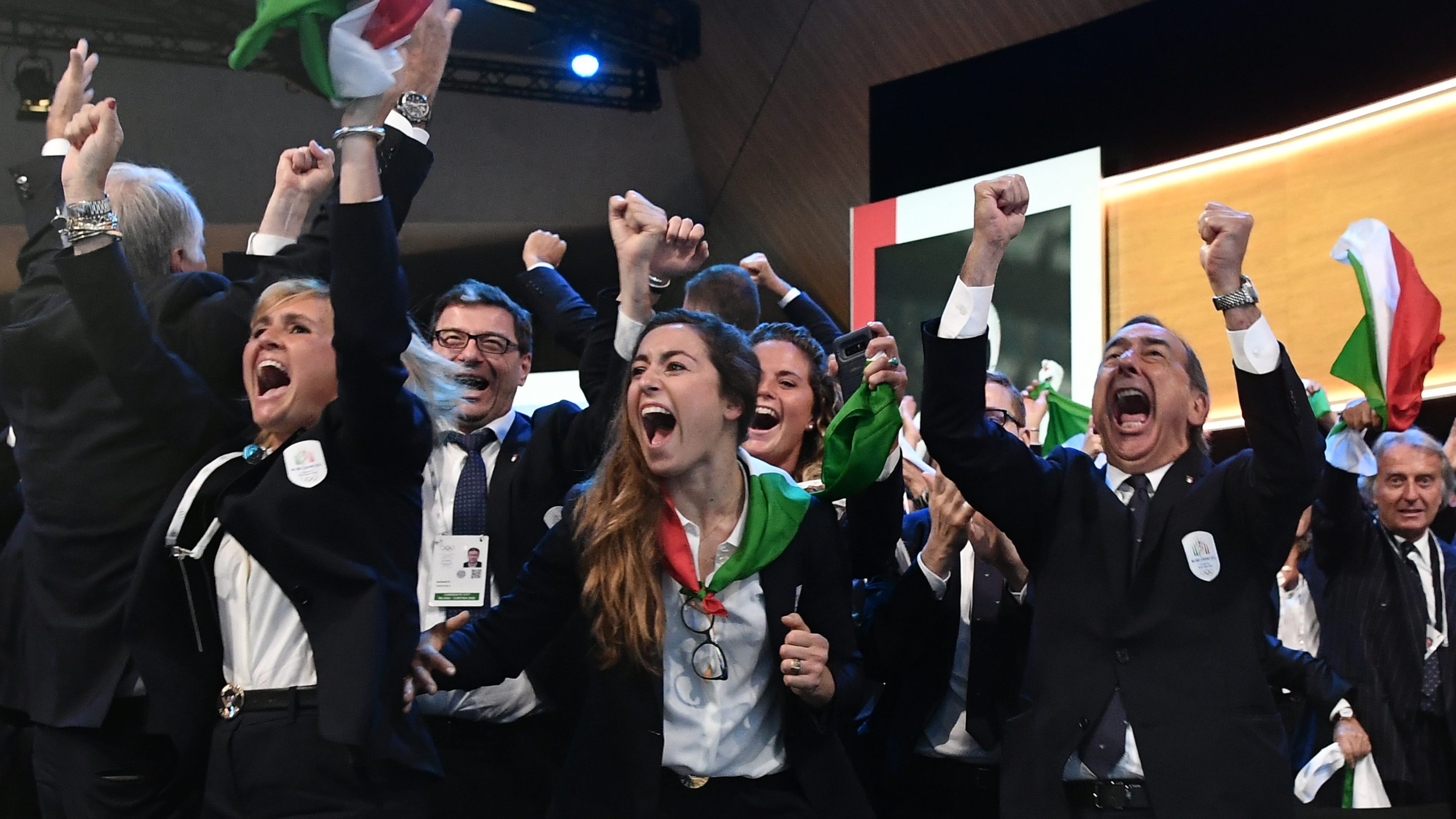Milan and Cortina d’Ampezzo will host the 2026 Winter Olympics, as Italy has won the right to host the Winter Games for the second time in the 21st century.

Italy last played host to the Olympics in 2006, when Torino earned the honor. Previously, Cortina had also been the site of the 1956 Winter Games.
Most Potential Hosts Drop Out Early in Process
The Italian bid only had one competitor: Stockholm-Are, which would have seen most of the competition take place in in Sweden, with the addition of a bobsled track located in Latvia.
In Monday’s voting, the Italian bid attracted 47 votes, while the Swedish bid earned just 34. Because there were only two active bids, only one round of voting was required.
The process didn’t start that way, however. At one point, there were numerous prospective hosts, most of which dropped out well before Monday’s meeting of the International Olympic Committee.
Sion, Switzerland withdrew its bid last June after voters rejected a proposal to fund the Winter Games. A similar story played out in Calgary, Alberta, where voters rejected continuing the city’s bid in November. Other proposals from Turkey and Austria were withdrawn due to lack of support, while Sapporo, Japan decided to bid for the 2030 Winter Games instead.
Italy Touts Local Financial Strength in Winning Bid
That left just two bids remaining in contention – neither of which would have been considered particularly strong in many other years. But financial guarantees that were commonplace in previous editions of Olympic bidding have been relaxed as municipalities have begun to balk at the costs of hosting the games, resulting in few bidders for recent editions.
One idea is to encourage the use of existing facilities, rather than saddling cities and countries with the high cost of building new venues. That’s why the Swedish bid included Latvia in a creative attempt to avoid having to build a new venue for bobsled, luge, and skeleton events.
Online bookmakers that were offering odds on the voting favored Sweden as the 2026 host. But several factors appeared to swing voters towards the Italian bid. Polling showed that there was much more support for hosting the Winter Olympics in Italy than in Sweden, both in the host cities and across each nation.
The IOC also expressed concerns over the lack of financial guarantees for the construction of an athlete’s village in Stockholm, while Italian officials overcame concerns about their country’s economic issues by pointing out the wealth in the area that was slated to host the Winter Games.
“We have budget problems in Italy, but I think that this is something that everyone has,†Italy Undersecretary of State Giancarlo Giorgetti said in a news conference before the vote. “They are two of the richest provinces in Europe. They certainly have the capacity, they have the readiness, they have the finances in order to be able to support the event.â€
The 2026 Winter Games won’t be terribly expensive for Italy – at least not compared to some recent editions of the festival. The total cost is expected to be about $1.7 billion, with the IOC kicking in at least $925 million of that amount. Comparatively, the opulent 2014 Winter Olympics in Sochi cost Russia $51 billion.










